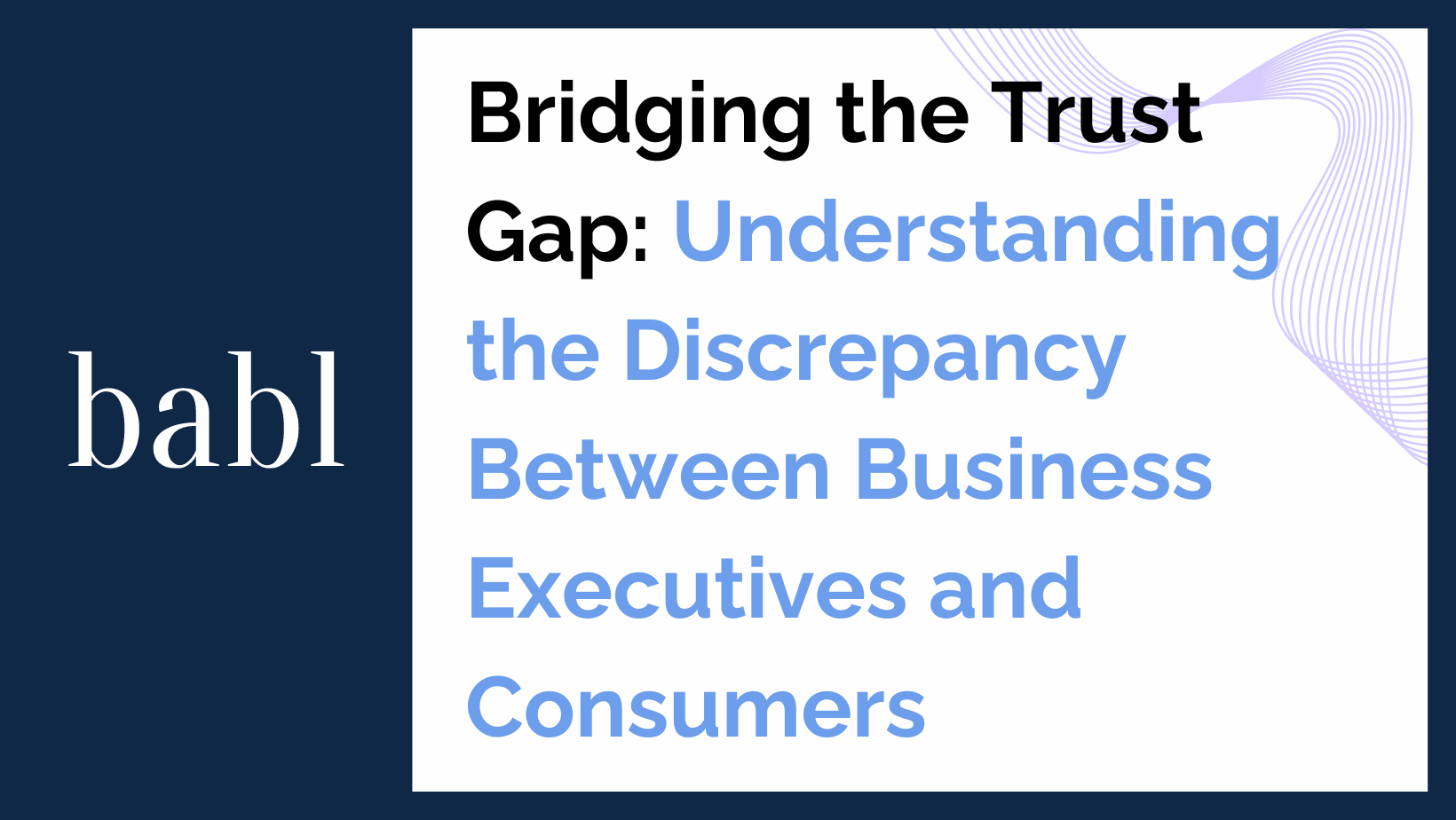Bridging the Trust Gap: Understanding the Discrepancy Between Business Executives and Consumers
Trust continues to be a cornerstone for successful adoption and integration of new technologies, like artificial intelligence (AI). Yet, a significant trust gap exists between business executives and consumers. This gap is not only a barrier to broader acceptance of AI but also poses a risk to the reputation and operational success of businesses. There are underlying reasons for this trust discrepancy, but companies can bridge this gap to foster a more trusting and collaborative environment.
The Trust Gap: A Stark Discrepancy
Recent surveys, including a comprehensive study by PwC, highlight a startling disparity between how business executives and consumers perceive trust in AI systems. According to the survey, a staggering 90% of business leaders believe they are effectively building trust within their organizations and with their consumers. In contrast, only 30% of consumers share this sentiment. This 60-point gap reveals a profound disconnect between corporate self-assessment and public perception.
Causes of the Trust Gap
Several factors contribute to this significant discrepancy:
- Overestimation of Trustworthiness by Executives: Business leaders often overestimate the level of trust their actions and communications engender. This overconfidence can stem from an internal echo chamber, where positive feedback within the organization does not necessarily reflect the broader consumer sentiment.
- Communication Breakdown: There is often a lack of effective communication about what companies are doing to build and maintain trust, especially regarding AI technologies. Consumers are frequently unaware of the measures businesses take to ensure the ethical use of AI, leading to skepticism and distrust.
- Differing Priorities: Business executives may prioritize profitability and operational efficiency, sometimes overlooking or underestimating the importance of transparent and ethical practices. Consumers, however, prioritize transparency, privacy, and ethical considerations, especially when it involves their data.
The Impact of the Trust Gap
The trust gap has significant implications for businesses:
- Customer Retention and Loyalty: Trust is crucial for maintaining customer loyalty. The PwC survey found that 40% of consumers who lose trust in a brand are likely to leave it, indicating that trust directly influences customer retention.
- Employee Morale and Productivity: Trust within the organization affects employee engagement and productivity. A lack of trust can lead to issues such as ‘quiet quitting,’ where employees disengage and reduce their efforts, impacting overall productivity.
- Investor Confidence: Investors are increasingly looking at a company’s ethical practices and governance as part of their investment decisions. A trust deficit can therefore limit access to capital and investment.
Strategies to Bridge the Trust Gap
- Transparency in AI Practices: Businesses need to be transparent about how they use AI, including data collection, processing, and decision-making processes. Clear communication about AI governance policies, data privacy measures, and ethical standards can help build consumer trust.
- Ethical AI Development: Implementing ethical guidelines for AI development and usage is critical. This includes avoiding biases in AI algorithms, ensuring data privacy, and being transparent about AI limitations.
- Effective Communication: Companies must engage in proactive communication strategies that inform consumers about their trust-building efforts. This could include detailed reports, public statements, and regular updates on AI initiatives.
- Independent Audits and Certifications: Engaging third-party auditors to assess AI systems and publicly sharing these results can provide an additional layer of trust. Certifications and compliance with standards such as ISO or NIST can further assure stakeholders of a company’s commitment to ethical practices.
- Consumer Engagement: Involving consumers in the dialogue about AI use, gathering their feedback, and addressing their concerns can help bridge the trust gap. This participatory approach demonstrates that businesses value consumer input and are committed to addressing their concerns.
Case Study: The Role of Ethical AI in Building Trust
One strong example comes from Patagonia, a company celebrated for its ethical and environmental commitments. By aligning its operations with clear moral values, Patagonia built deep, long-term trust with its customers. AI companies can mirror this approach by focusing on transparency and ethical development. Those that prioritize fairness, inclusion, and accountability can differentiate themselves in a crowded marketplace.
The Future of Trust in AI
As AI becomes embedded in everyday life, trust will only grow more important. Companies must move beyond the technical and embrace the ethical, social, and communication dimensions of AI. In doing so, they can build resilience, attract talent, and maintain consumer confidence even during disruption.
Conclusion
Bridging the trust gap requires more than good intentions—it demands transparency, ethical governance, and ongoing dialogue. Businesses that invest in trust-centered strategies will not only improve public perception but also strengthen internal culture and investor relations. Ultimately, responsible AI development and open communication will define the next generation of successful companies. By addressing the trust gap now, organizations can foster stronger relationships with consumers, employees, and stakeholders, paving the way for a more ethical and trusted digital future.
Need Help?
If you want to gain a competitive edge through responsible AI practices, contact BABL AI. Their team of Audit Experts can help your organization design, audit, and implement transparent AI systems that inspire lasting trust.





